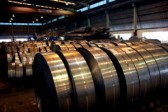This is the second piece in a symposium on John Medaille’s Toward a Truly Free Market.
Want more? Please visit the American Conservative to read Russello’s original review of Medaille’s book. Visit their website to donate or for other articles like this one.
New York, NY. As I mention in my review of John Médaille ‘s excellent book, he has clarified a point that regularly bedevils discussion of distributism. Distributism is not a third way between two alternatives, taking items from capitalist menu A and socialist menu B. It is instead a completely different way of thinking about the human person and therefore about economics.
The book does a great service in dismantling economic shibboleths about trade, money, labor, and markets, and then reconstructing them along different premises that conform with both human happiness and economic efficiency. I also thought his judicious use of the actual word “distributism” was on the mark. It has become something if a distraction for people.
I’m grateful for the opportunity to join in this conversation about Médaille ‘s book, not least because it allowed me the opportunity to read through it once again; I found the argument even more engaging the second time around. In light of my expressed admiration for Toward a Truly Free Market, though, I would like to use this post to further explore some of Médaille ‘s arguments.
The issue I want to address is one of scale in the context of industrial manufacturing. This question can be perplexing for distributists, because thinking about the modern economy lends itself to gigantism. The conventional wisdoms during the financial crisis that there are enterprises ‘too n big to fail” is a reflection of our incorrect assumption that big companies are needed in a modern economy, and that they should share with the government control over the economy.
Médaille devotes a section of his book to the dysfunctions of modern corporate organization, and expertly dissects many parts of its internal structure. He notes that corporations, internally, are really planned economies with the same inefficiencies and bureaucratism that a planned economy has. Médaille writes “[a]fter a certain size [the corporation] becomes indistinguishable from a planned economy, and converts what should be a ‘free market’ enterprise into a bureaucratic structure that suffers form all the problems of a socialist state, with none of the benefits.” Part of this is of course because government power helps the growth of corporations, and the increased power of large corporations assist the growth of a centralized state. Together, they create economic monopoly and political servility.
However, the next stage of the analysis I would like to see Médaille undertake (perhaps in his next book?) would provide some more detail on the appropriate scale of corporate manufacturing enterprises. His examples of Mondragon Industrial Corporation and the farms of Emilia-Romagna make the point that distributism can work even in the manufacturing sector and even on a large scale. But those examples do not exhaust the rage of corporate structures. His emphasis on general-purpose machinery, “machinery … that the factory can shift easily from product line to product line, as demand dictates, without excessive retooling costs,” may not apply to every enterprise. I am thinking here of perhaps machines used to make specialized medical devices or unique product lines that do not lend themselves to general purposes. Does Médaille nevertheless see a role for larger-scale enterprises with such specialized machines?
Behind his argument for general purpose machinery and flexible manufacturing is Médaille’s distinction between supply-push and demand-pull manufacturing. Supply-push manufacturing relies on advertising to stoke demand, even as it drives down the price of those who work and who are presumably expected to purchase the products churned out. In a startling image, Medaille describes this system as producing ‘landfill,” racing from consumerist objects to garbage, replaced by the next new thing. What Médaille proposes instead is demand-pull manufacturing, which relies on smaller-scale distribution networks and a social as much as an economic relationship between producer and consumer.
While these systems may work for some industries, distributists, as an economic matter, may need to address whether there is room for larger-scale manufacturing, even if it does not conform to the supply-push model. Such larger-scale production does have surface appeal, especially if it is joined to an argument of seeming scientific import. For example, Médaille would argue for support of local agriculture on economic as well as social grounds, and that large-scale agribusinesses should be discouraged. That view is now becoming increasingly common even among “green” liberals.
Agribusiness is not without benefits, however. Because of it, people can now enjoy fresh vegetables and fruit all year round. Nevertheless, the economic costs of that enterprise need to be brought to the fore, in terms of both the inefficiencies imposed by the heavy government involvement in agribusiness, as well a the fact that advertising promotes not healthy food produced by agriculture, of whatever size, but endless streams of chemically-engineered foodstuffs.
Toward a Truly Free Market provides some of the tools for answering these questions, and will be a rich source of reflection and further work as we search for a way out of the current economic malaise.
—
Gerald J. Russello is a Fellow of the Chesterton Institute at Seton Hall University.







7 comments
Rod Blago
When I learned about “syndicalism” in community college years ago it struck me as a way to strike a balance between the (theoretical) efficiencies of that mythical beast — the “free market economy” — that could also give workers a stake in the system. The global economic crisis reminded me of Jose Maria Arizmendiarrieta so I wrote a song about him: http://on.fb.me/fmCnRb … hope I’m not mangling his name too badly. Interesting to hear his ideas are alive and well: http://geo.coop/node/584
SiarlysJenkins
Any “premises that conform with both human happiness and economic efficiency” sound like a huge improvement over what we have now. Given that electoral politics produces change so incremental (if any) that the status quo hardly budges, while revolutionary insurgency seems to bring forward megalomaniacs like Hugo Chavez and Robert Mugabe (even Jesse Ventura shows some of the same streak), is there a plan to develop a distributist economy, or is it a utopia in search of a movement?
I also remain curious — having read some of Medaille’s past posts and comments at this site — how the very real conflict of interest between capital investing employers and wage laborers works out in a distributist system. I know that in a socialist economy, managers tend to either overlook reinvesting revenue in sustaining infrastructure, OR, come to feel the pressures of maintaining the enterprise to the point that they too view the workers as mere corpuscles and servants of the enterprise. But if distributism became in practice a kind of benevolent capitalism, it wouldn’t live up to its billing.
I have a sense of what John Dunn is talking about though. I spent a couple of years trying to get OSHA to deal with a very real threat to health and safety, which had put two employees out with legitimate workers comp claims. They decided they didn’t have jurisdiction, but while they were looking around, they required my employer to hand out sheets of meaningless paper we all had to sign, showed us uninformed fluff movies about bloodborne pathogens (a serious concern, but the movies were fluff), and made it necessary for all the office staff to stop using white out, since there was no documentation whether it might cause cancer — not that anyone was drinking or inhaling the stuff.
John Dunn
In 1982, after 5+ years with the US Department of Labor, I went to work for IBM. I expected the atmosphere to be very different. I soon discovered my mistake. IBM was a bureaucracy just as the US Department of Labor was, with many of the same dysfunctional characteristics. And while I enjoyed many of my years there (and am now retired with a modest pension as well as health benefits the cost of which I help to carry), I also realized that to flourish in that environment you had to find the interstices, the cracks in the structure so to speak, become, in what became the jargon at one point, an “intrapraneur”. I was sometimes successful, more often not.
Gerald
Thanks for the comments.
David, I agree with you abvout the potential effects of year-round agribusiness. My only point was that we should at least take acocunt of the fact that year-round availability of fresh produce does provide advantages, and was in fact considered a great advance when it occurred.
Russell thanks for the kind words. I agree about the implicit pressures toward globalization/gigantism in current trade policies, and agree that need not be the only result, even in an industrialized eocnomy.
David
I enjoyed the article, I was just having a bit of contrarian for breakfast this morning.
Many things are considered great advances, nuclear bombs among them. (There’s that contrarian popping up again.) While I appreciate things which I consider “good” advances and though I recognize some of them have come along with “not-so-good” advances, I am most keenly worded against advances which we are still in a position of reconsidering.
Not much I can do about standardized railway gauges these days, but we might all consider reviewing the habits of eating corn on the cob in January. We might consider jarring and pickling not for a bit of novelty at Christmas or the Church bakesale, but as a way for the family to join together in the well-ordered vocation of homemaking.
Russell Arben Fox
Some very nice thoughts on an excellent book here, Gerald; thank you for sharing them.
In regard to Mondragon, and what it and other medium to large-scale manufacturing cooperatives can teach us, my thinking has been influenced quite a bit by what Erik Olin Wright, in his book Envisioning Real Utopias, has to say about them. In a review of that book that I may cross-post here to FPR, I observe that many of democratic and egalitarian criticisms of Mondragon (Wright is a democratic socialist, and so is writing from a left perspective) arise in response to the fact that Mondragon has been obliged (or tempted, or both) to respond to the requirements (or opportunities) of economic participation in the EU and other trading groups by rapidly expanding its product line, purchasing other capitalist firms around Europe and South America to produce parts for its own manufacturing operations, and as a result diluting the cultural fore which helped sustain its egalitarian ethos when it was primarily a Spanish, and more particularly Basque, operation. I think some of the same observations can apply to Medaille’s analysis; it’s not that manufacturing necessarily requires a degree of specialization which invariably leads towards gigantism, but rather that our global trade in manufactured goods invites/demands it. So preserving the virtues of a distributist (as well as a democratic socialist) ethos in economic life also likely mandates a respect for the cultural particularities of whatever space may give rise to such exchanges, and therefore also a degree of protectionism, so that the enormities of the global marketplace to not force/tempt manufacturing firms to expand, for the sake of increasingly their market share and remaining competitive with other, non-cooperative firms, beyond the size compatible with distributist goals.
David
Fresh fruits and vegetables all year round is part of the problem–not a benefit at all. It undermines one of the critical cycles of life “harvest time” and encourages gluttony.
Comments are closed.